Turning Points in Christian History 5
Al Krummenacher
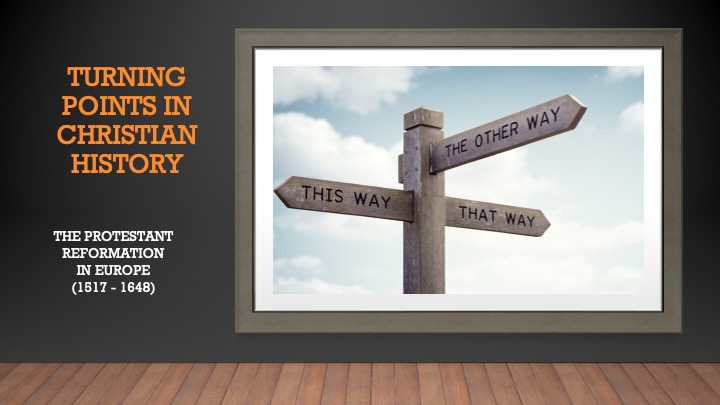
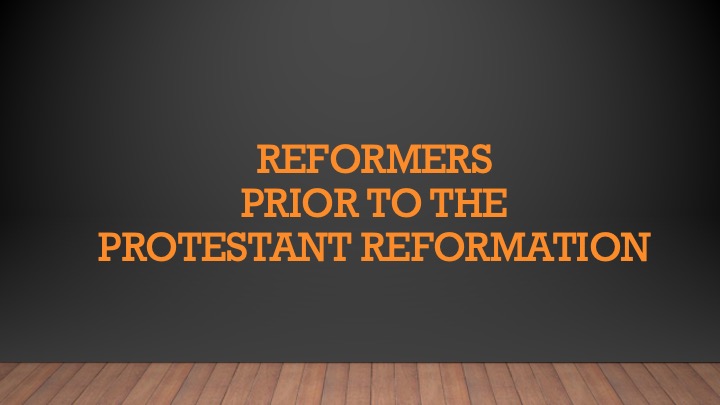
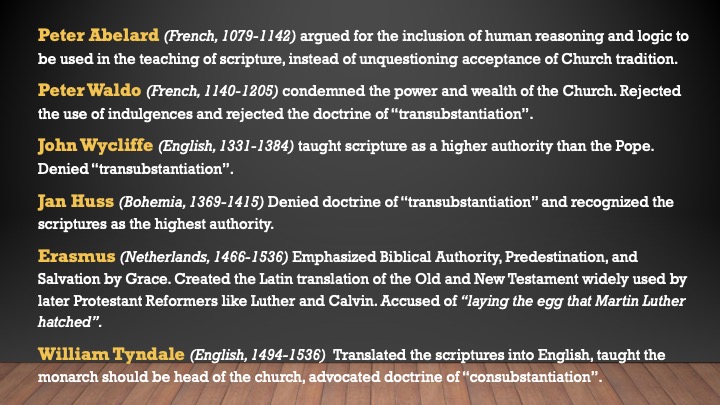
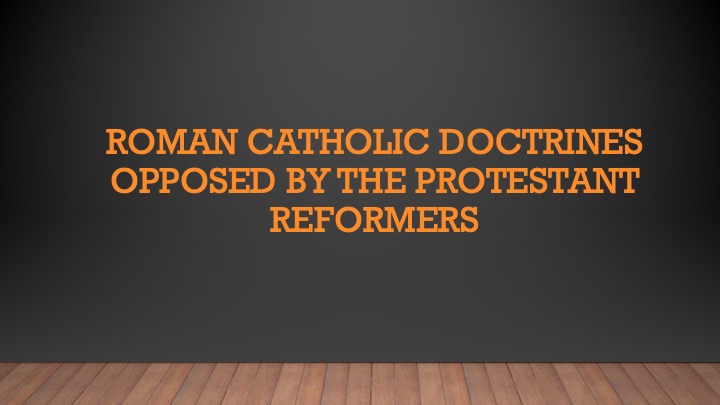
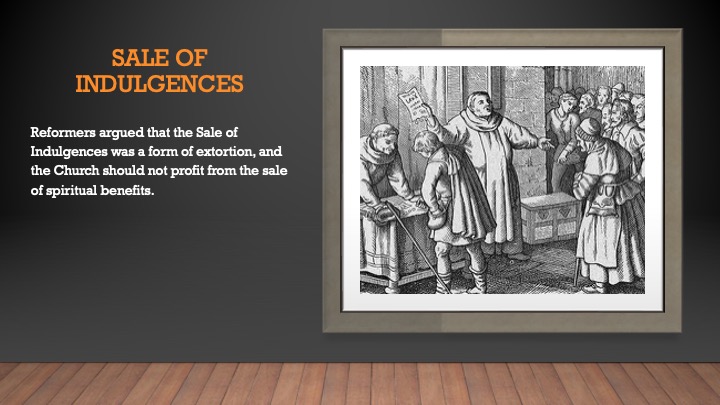
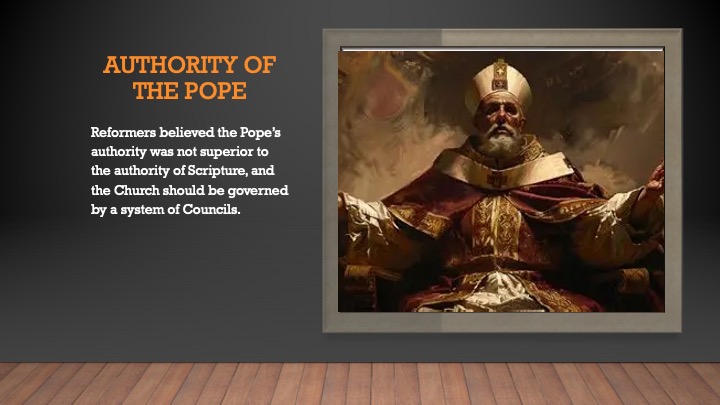
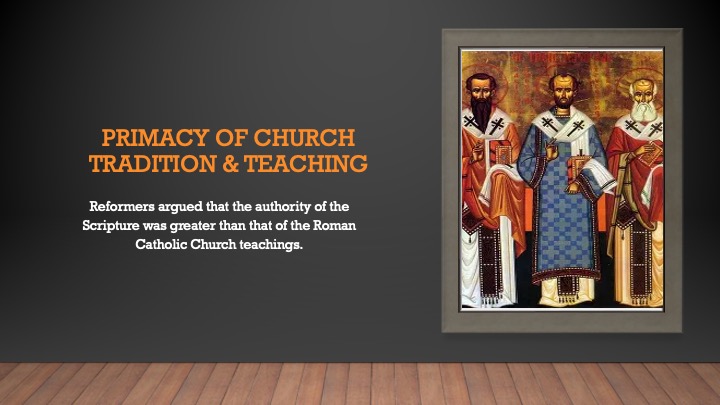
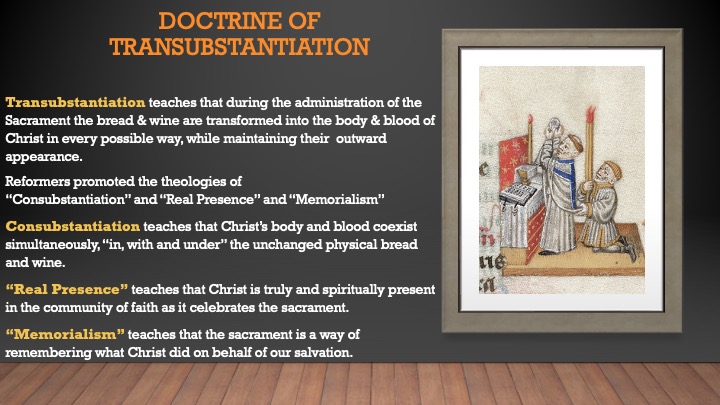
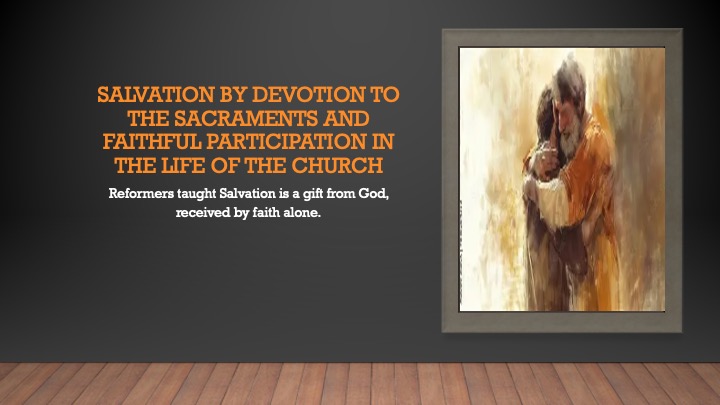
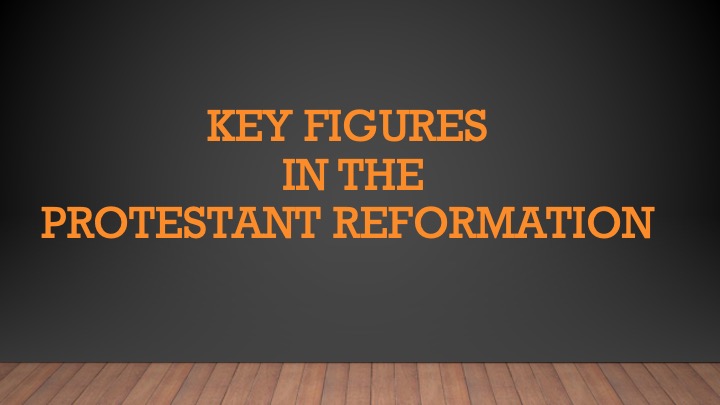
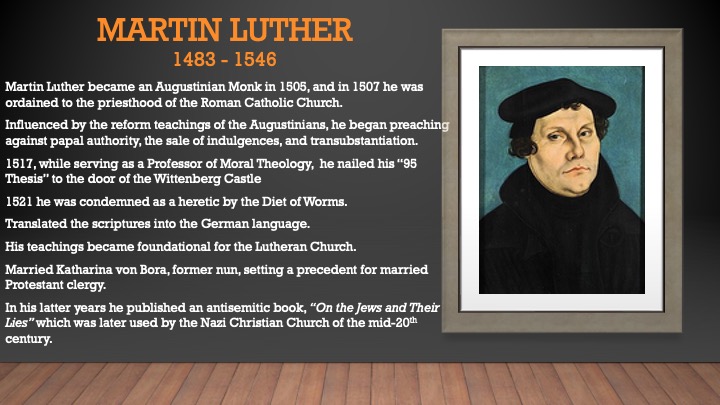
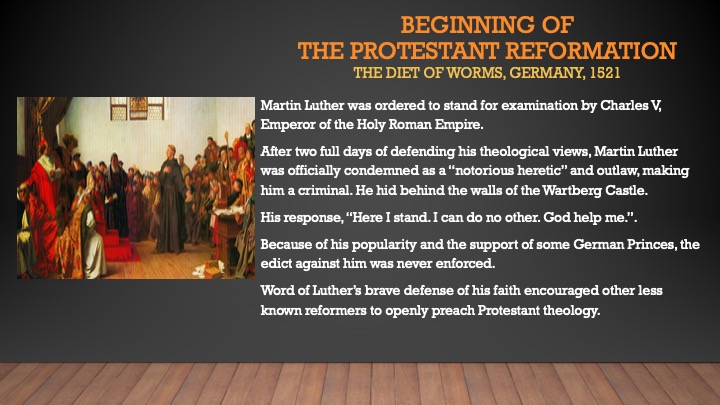
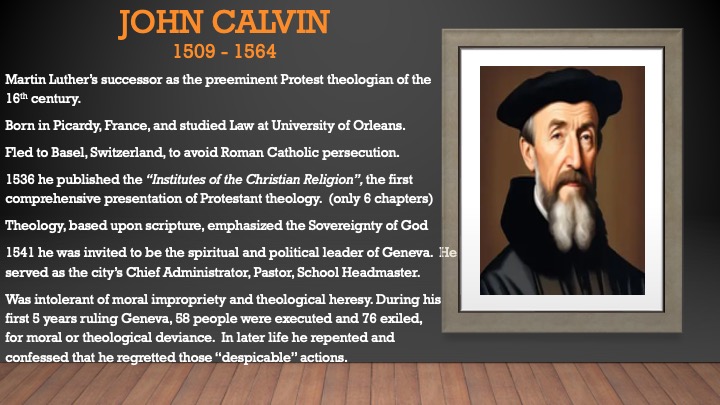
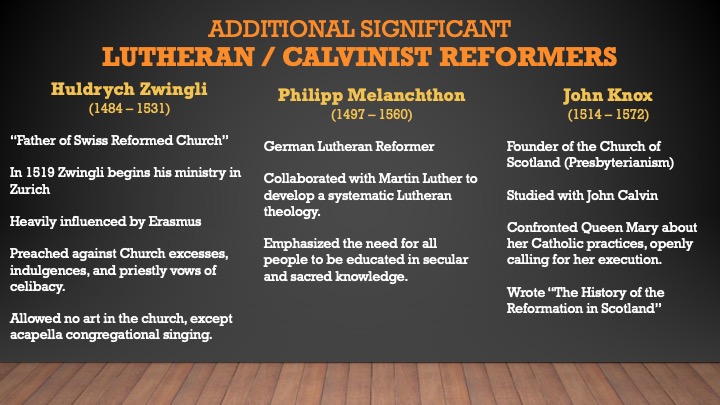
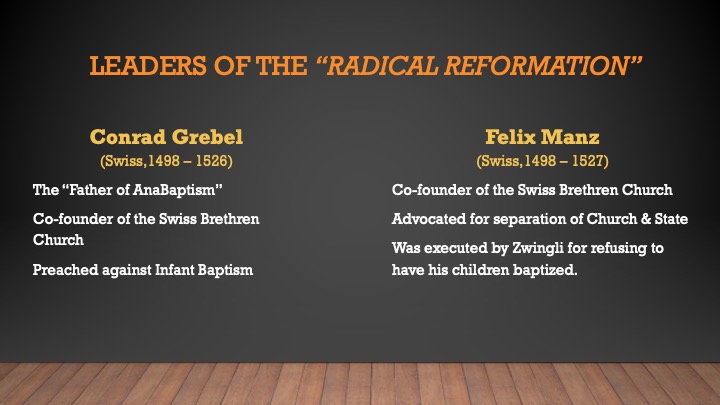
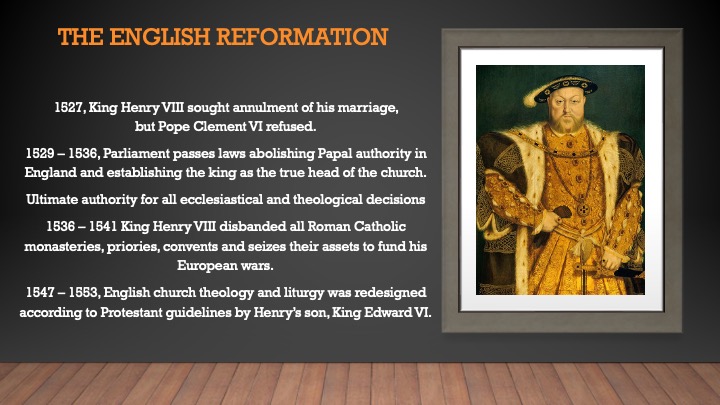
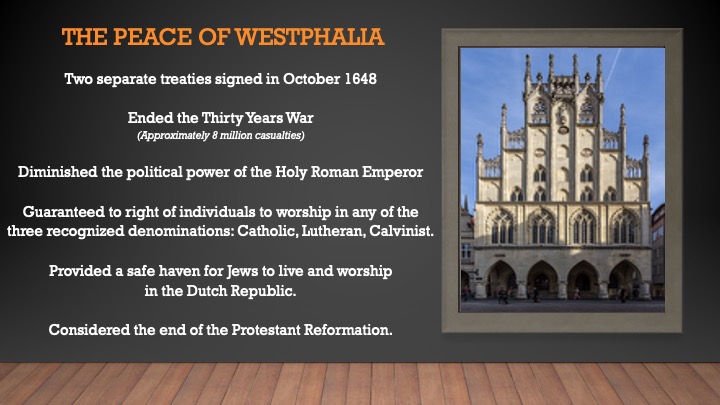
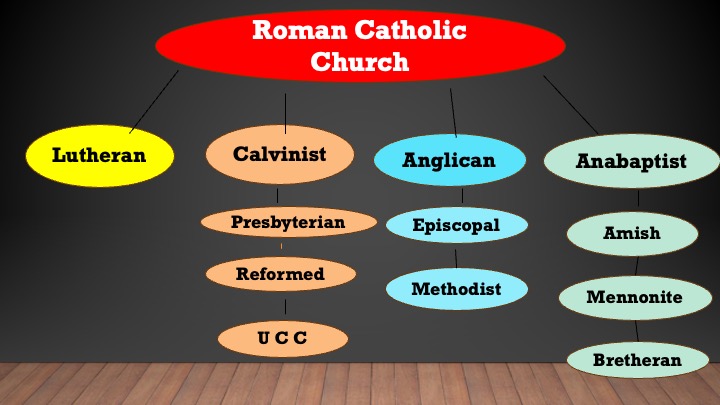
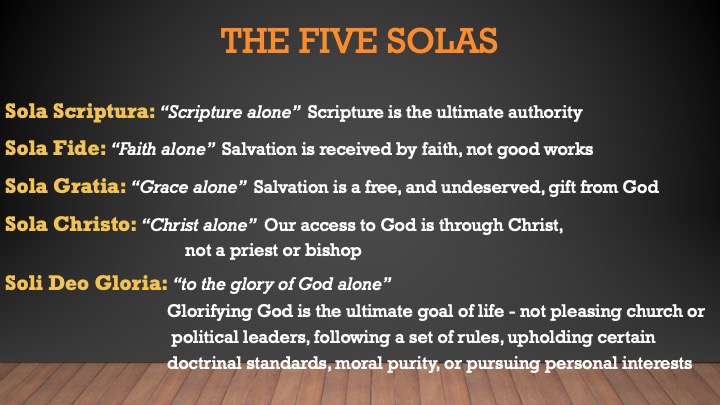
Turning Points in Christian History 5
Links
<< Home >> << Turning Points Menu >>
Turning Points in Christian History - 5 The text
Turning Points in Christian History
The Protestant Reformation in Europe (1517 - 1648)
Reformers Prior to the Protestant Reformation
Peter Abelard (French, 1079-1142) argued for the inclusion of human reasoning and logic to be used in the teaching of scripture, instead of unquestioning acceptance of Church tradition.
Peter Waldo (French, 1140-1205) condemned the power and wealth of the Church. Rejected the use of indulgences and rejected the doctrine of “transubstantiation”.
John Wycliffe (English, 1331-1384) taught scripture as a higher authority than the Pope. Denied “transubstantiation”.
Jan Huss (Bohemia, 1369-1415) Denied doctrine of “transubstantiation” and recognized the scriptures as the highest authority.
Erasmus (Netherlands, 1466-1536) Emphasized Biblical Authority, Predestination, and Salvation by Grace. Created the Latin translation of the Old and New Testament widely used by later Protestant Reformers like Luther and Calvin. Accused of “laying the egg that Martin Luther hatched”.
William Tyndale (English, 1494-1536) Translated the scriptures into English, taught the monarch should be head of the church, advocated doctrine of “consubstantiation”.
Roman
Catholic Doctrines
Opposed by the Protestant Reformers
Sale of Indulgences
Reformers argued that the Sale of Indulgences was a form of extortion, and the Church should not profit from the sale of spiritual benefits.
Authority of the Pope
Reformers believed the Pope’s authority was not superior to the authority of Scripture, and the Church should be governed by a system of Councils.
Primacy of Church Tradition & Teaching
Reformers argued that the authority of the Scripture was greater than that of the Roman Catholic Church teachings.
Doctrine of Transubstantiation
Transubstantiation teaches that during the administration of the Sacrament the bread & wine are transformed into the body & blood of Christ in every possible way, while maintaining their outward appearance.
Reformers promoted the theologies of “Consubstantiation” and “Real Presence” and “Memorialism”
Consubstantiation teaches that Christ’s body and blood coexist simultaneously, “in, with and under” the unchanged physical bread and wine.
“Real Presence” teaches that Christ is truly and spiritually present in the community of faith as it celebrates the sacrament.
“Memorialism” teaches that the sacrament is a way of remembering what Christ did on behalf of our salvation.
Salvation by Devotion to the sacraments and faithful participation in the life of the church
Reformers taught Salvation is a gift from God, received by faith alone.
Key Figures in the Protestant Reformation
Martin Luther 1483 – 1546
Martin Luther became an Augustinian Monk in 1505, and in 1507 he was ordained to the priesthood of the Roman Catholic Church.
Influenced by the reform teachings of the Augustinians, he began preaching against papal authority, the sale of indulgences, and transubstantiation.
1517, while serving as a Professor of Moral Theology, he nailed his “95 Thesis” to the door of the Wittenberg Castle
1521 he was condemned as a heretic by the Diet of Worms.
Translated the scriptures into the German language.
His teachings became foundational for the Lutheran Church.
Married Katharina von Bora, former nun, setting a precedent for married Protestant clergy.
In his latter years he published an antisemitic book, “On the Jews and Their Lies” which was later used by the Nazi Christian Church of the mid-20th century.
Beginning
of the Protestant Reformation
The Diet of Worms, Germany, 1521
Martin Luther was ordered to stand for examination by Charles V, Emperor of the Holy Roman Empire.
After two full days of defending his theological views, Martin Luther was officially condemned as a “notorious heretic” and outlaw, making him a criminal. He hid behind the walls of the Wartberg Castle.
His response, “Here I stand. I can do no other. God help me.”.
Because of his popularity and the support of some German Princes, the edict against him was never enforced.
Word of Luther’s brave defense of his faith encouraged other less known reformers to openly preach Protestant theology.
John Calvin 1509 – 1564
Martin Luther’s successor as the preeminent Protest theologian of the 16th century.
Born in Picardy, France, and studied Law at University of Orleans.
Fled to Basel, Switzerland, to avoid Roman Catholic persecution.
1536 he published the “Institutes of the Christian Religion”, the first comprehensive presentation of Protestant theology. (only 6 chapters)
Theology, based upon scripture, emphasized the Sovereignty of God
1541 he was invited to be the spiritual and political leader of Geneva. He served as the city’s Chief Administrator, Pastor, School Headmaster.
Was intolerant of moral impropriety and theological heresy. During his first 5 years ruling Geneva, 58 people were executed and 76 exiled, for moral or theological deviance. In later life he repented and confessed that he regretted those “despicable” actions.
Additional Significant Lutheran / Calvinist Reformers
Huldrych Zwingli (1484 – 1531)
“Father of Swiss Reformed Church”
In 1519 Zwingli begins his ministry in Zurich
Heavily influenced by Erasmus
Preached against Church excesses, indulgences, and priestly vows of celibacy.
Allowed no art in the church, except acapella congregational singing.
Philipp Melanchthon (1497 – 1560)
German Lutheran Reformer
Collaborated with Martin Luther to develop a systematic Lutheran theology.
Emphasized the need for all people to be educated in secular and sacred knowledge.
John Knox (1514 – 1572)
Founder of the Church of Scotland (Presbyterianism)
Studied with John Calvin
Confronted Queen Mary about her Catholic practices, openly calling for her execution.
Wrote “The History of the Reformation in Scotland”
Leaders of the “Radical Reformation”
Conrad Grebel (Swiss,1498 – 1526)
The “Father of AnaBaptism”
Co-founder of the Swiss Brethren Church
Preached against Infant Baptism
Felix Manz (Swiss,1498 – 1527)
Co-founder of the Swiss Brethren Church
Advocated for separation of Church & State
Was executed by Zwingli for refusing to have his children baptized.
The English Reformation
1527, King Henry VIII sought annulment of his marriage, but Pope Clement VI refused.
1529 – 1536, Parliament passes laws abolishing Papal authority in England and establishing the king as the true head of the church.
Ultimate authority for all ecclesiastical and theological decisions
1536 – 1541 King Henry VIII disbanded all Roman Catholic monasteries, priories, convents and seizes their assets to fund his European wars.
1547 – 1553, English church theology and liturgy was redesigned according to Protestant guidelines by Henry’s son, King Edward VI.
The Peace of Westphalia
Two separate treaties signed in October 1648
Ended the Thirty Years War (Approximately 8 million casualties)
Diminished the political power of the Holy Roman Emperor
Guaranteed to right of individuals to worship in any of the three recognized denominations: Catholic, Lutheran, Calvinist.
Provided a safe haven for Jews to live and worship in the Dutch Republic.
Considered the end of the Protestant Reformation.
The Five Solas
Sola Scriptura: “Scripture alone” Scripture is the ultimate authority
Sola Fide: “Faith alone” Salvation is received by faith, not good works
Sola Gratia: “Grace alone” Salvation is a free, and undeserved, gift from God
Sola Christo: “Christ alone” Our access to God is through Christ, not a priest or bishop
Soli Deo Gloria: “to the glory of God alone”
Glorifying God is the ultimate goal of life - not pleasing church or political leaders, following a set of rules, upholding certain doctrinal standards, moral purity, or pursuing personal interests